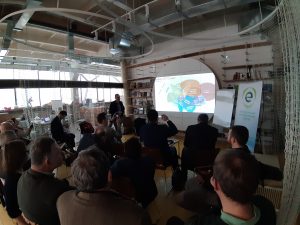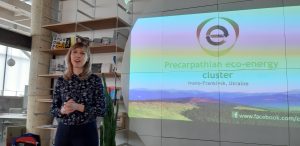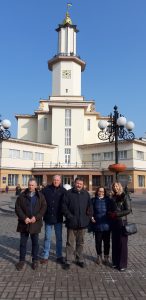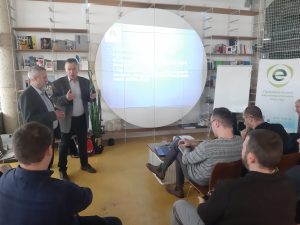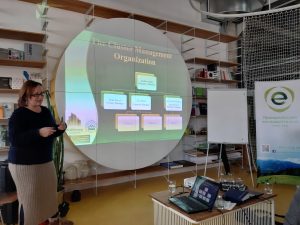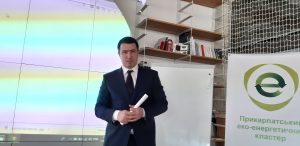From 14.02 to 16.02.2019, a delegation of the Hungarian cluster of ArchEnerg International Innovation Cluster of Building Trade and Renewable Energy from Szeged (Hungary), Eastern ICT Cluster from Lublin (Poland) and the Volyn Cluster “Innovation Energy” have visited International Conference of Partner Clusters organized by PEEC in Ivano-Frankivsk (Ukraine).
The partner meeting was a part of the joint Hungarian-Ukrainian EaP Plus Eastern Partnership Cooperation Project and aimed to showcase win-win strategy vectors when harnessing the potential of each partner cluster. Much attention was paid to the nuances of the organizational structures and the experience of each of them. The topic of clustering in Ukraine has been raised recently, and the number of recently created organizations of this type is negligible (the vast majority are IT clusters, as representatives of the most developed IT industry in Ukraine). These are the so-called “bottom-up initiatives”, namely the natural response to changes in society and economic growth. Whatever the experts’ estimation, that’s how clusters appear – as a clear form of organization and cooperation until recently by direct competitors in a particular industry – “so-called coopetition” – notes the president of the Eastern Cluster oICT Robert Szlęzak. For example, in Europe, clusters emerged about 20 years ago, in many cases on the initiative of government or government support programs, since then the model of such organization and cooperation of business, science and the public or government has been confirmed in practice and today clusters make up 80% of the total EU economy. They continue to be supported by individual EU programs and foundations, as well as by governments, and are closely monitored and sometimes malware or passive clusters are remowved from European clusters map. This is the reason why the Cluster Excellence Label: Bronze, Silver and Gold awarded every 2 years if the organization meets all the criteria and is active and influential. Partners of the PreCarpathian Eco-Energy Cluster – ArchEnerg from Szeged and the Eastern Cluster ICT from Lublin were also awarded such honors. The Hungarian ArchEnerg Cluster, established in 2007, consists of 80 participants and has been awarded the Gold Label, and the Polish Eastern ICT Cluster – since 2007, uniting 130 participants has a Bronze Label.
For two Ukrainian young energy clusters – the host of the meeting – PreCarpathian Eco-Energy Cluster from Ivano-Frankivsk and the guest – Volyn “Innovation Energy” Cluster from Lutsk it was extremely valuable to learn about the history of creation, activities, best projects and strategies of these developed clusters. In Hungary and Poland, participation in the cluster makes it possible to receive significant financial aid, and as Andras Gonda, director of ArchEnerg, stated, “up to 95% of the total budget could be covered by Governement on development, innovation and construction of new facilities”, which is why implementation of grant projects is the key activity for them. In such case, the selection of applicants and the communication inside the cluster is a main tool and the main task for cluster management. It was also interesting to find out that in both clusters, as in most in the EU, cluster management is handled by a separate entity – a legal entity called the cluster coordinator. Instead, the highest-level representation is made by the President, a separate individual over the coordinator with a large network of contacts and status within and outside the country.
Also, during the delegations visit from the partner clusters, PEEC participants presented their activities and projects both on presentations and on real objects.
Of course, all the information received in a few intense days in one article is difficult to convey, it is just important to note that today in Ukraine clusters are individual initiatives of active and conscious people and socially responsible business, that uniting are changing the local environment. The experience of European clusters shows the prospect of influencing national policy as well as being a full participant in law-making processes. And the potential that comes from voluntary conscious joining of the efforts of active companies and people, gives hope for the creation of the “right” direction of region and country development.
PEEC managing director, Lyudmyla Shyyko
Here is more photos from the event: //web.facebook.com/pg/ee.cluster.if/photos/?tab=album&album_id=419350521944151
